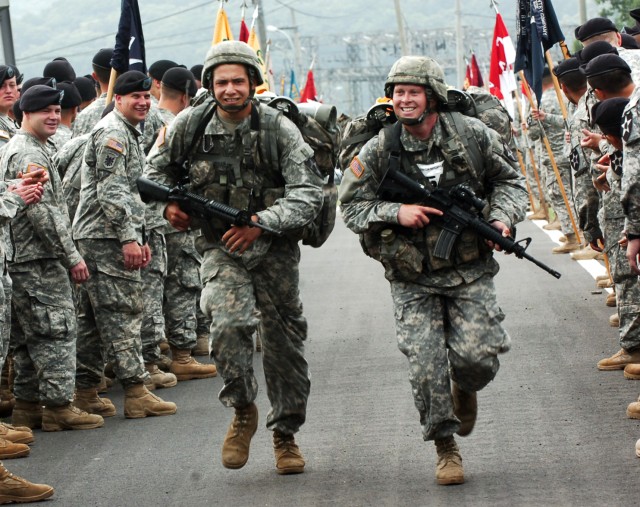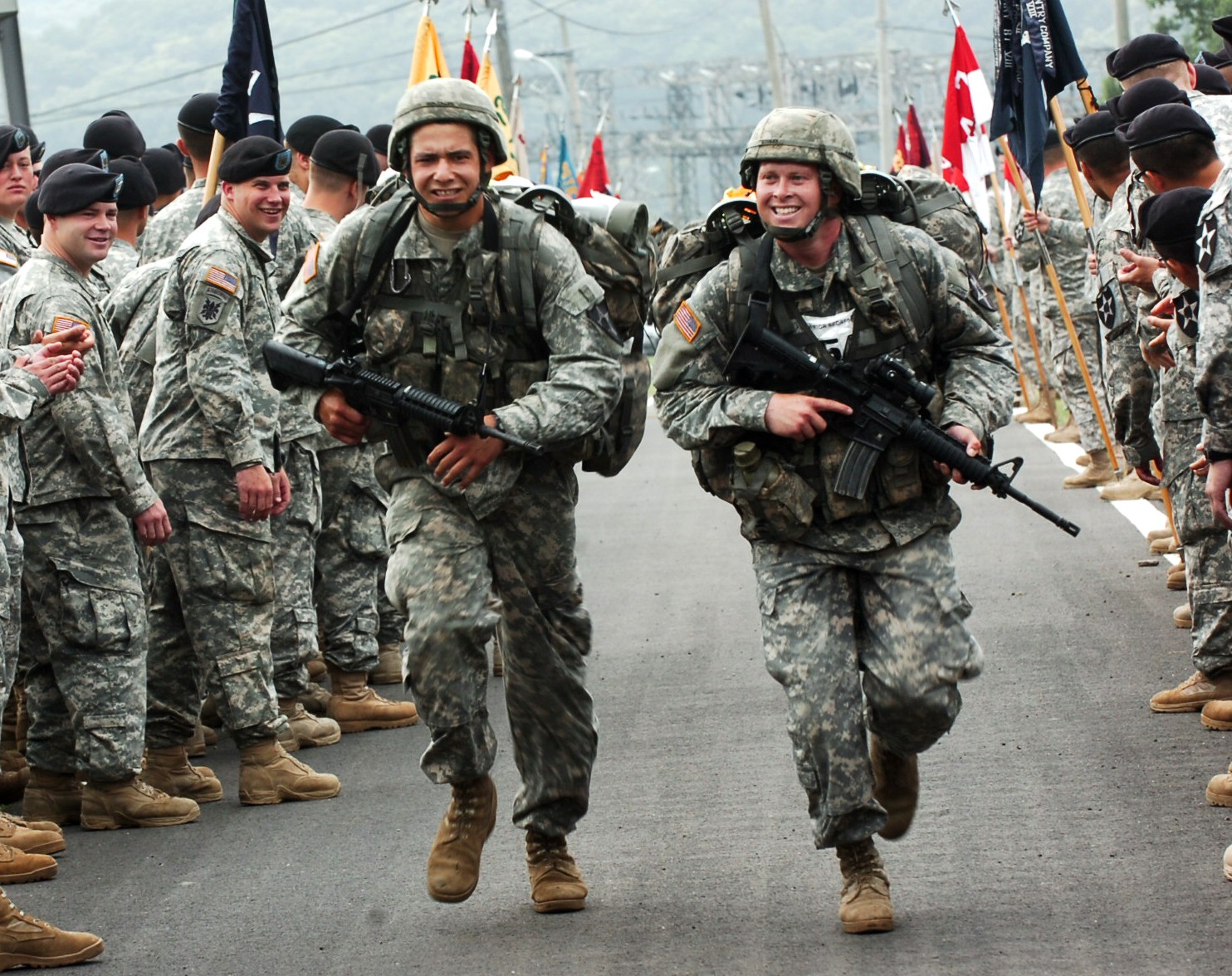
CAMP CASEY, Republic of Korea -- Soldiers and Korean Augmentation to the United States Army (KATUSA) from all over the Korean peninsula came to Camp Casey June 15 to 19, in order to test and see who would receive the coveted Expert Infantry Badge.
Hosted by 2nd Battalion, 9th Infantry Regiment, Soldiers were pushed both mentally and physically in 37 different tasks including a grenade obstacle course, first aid and finishing with a 12-mile road march.
"The purpose of the EIB is to test Infantry Soldiers on fundamental skills they need in order to be successful," said Sgt. Maj. Michael Johnson, operations sergeant major for 2-9 Inf. "Not only does it reinforce the basic combat skills but it also builds pride in the unit that sent the Soldiers and the competitors themselves."
The EIB was first created in 1943 and is currently awarded to personnel who hold Infantry or Special Forces military occupation specialties. Each station is graded by cadre who have previously received the EIB ensuring the strict standards of the test are upheld.
"If you receive a no-go at a station you are given an opportunity to practice and then retry with a different grader," said Cpl. Brandon Jones, a mortar man for Headquarters Company, 1-72 Armored Regiment, and a member of the cadre for the EIB test. "However, if you receive two no-gos at any time during the event you are disqualified."
This year 438 Soldiers and KATUSAs started the testing with only 87 ultimately receiving the EIB.
"Those that earned the badge have proven that they can pay attention to detail and focus on the task at hand," said Johnson.
For less experienced Soldiers, the EIB proved to be a valuable stepping stone towards becoming a better Soldier, infantryman and future leader.
"It was the hardest thing I've done in the Army," said Pfc. Dennis Gleen, an Infantryman for B. Co., 2-9 Inf. "A lot of it was mental but the payoff is that the badge let's you stand out as an Infantry Soldier, it makes you a leader and shows that you know your job."

Social Sharing